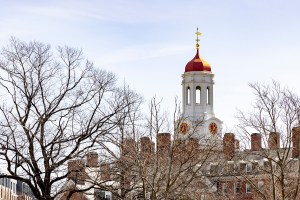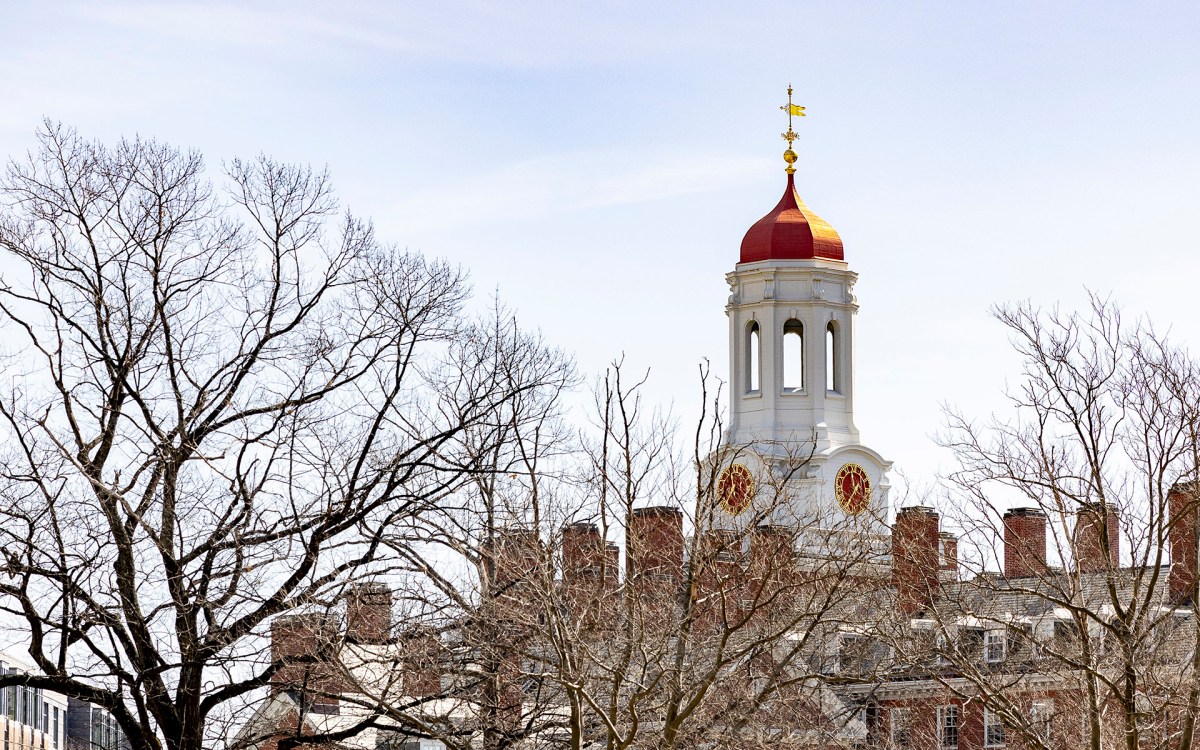
“The idea is that we build community around the food we grow,” said Timothy Severyn, M.T.S. ’11, co-coordinator of the Harvard Divinity School Community Garden. The garden is just one of the School’s many sustainability efforts.
Stephanie Mitchell/Harvard Staff Photographer
Its sustaining mission
Divinity School cuts energy use, grows its own crops
This is one of a series of occasional stories on the measures that Schools at Harvard are taking to reduce greenhouse gas emissions.
On a warm October afternoon, 50 students, faculty, and staff members from the Harvard Divinity School (HDS) convened at the HDS Community Garden, located on an 800-square-foot plot behind the Center for the Study of World Religions. The gathering featured a cooking demonstration by Martin Breslin, director for culinary operations at Harvard University Hospitality and Dining Services, who served up roasted potatoes, grilled tomatoes, and pesto, all made fresh from the garden.
“It was wonderful to see our food prepared in such amazing ways and then shared with the community, an hour from ground to fork,” said Timothy Severyn, M.T.S. ’11. Severyn, along with Grace Egbert, M.T.S. ’11, is co-coordinator of the garden, which was planted in spring 2009 as a joint project between the student group EcoDiv and members of the HDS Green Team. Volunteers care for the garden on a weekly basis, harvesting eggplants, carrots, sugar snap peas, cucumbers, kale, and other vegetables and herbs.
“The idea is that we build community around the food we grow,” said Severyn. “It’s really taken off this year.”
Twice a week, the Rock Café serves food harvested from the garden at a new “community table.” Seats at the table, located inside the LEED Gold-certified Rockefeller Hall, can be reserved by anyone on campus.
“A lot of divinity schools have a traditional refectory type of environment with long tables, where you can share a communal meal,” said Ralph DeFlorio, HDS director of operations. “We felt we wanted to get back to that type of dining experience.” The special table — a first at Harvard — serves multiple purposes.
“With a sustainable meal, you waste fewer food miles in transportation, and you get the satisfaction of knowing you’re eating something the students and staff helped plant and harvest,” said DeFlorio. “Sustainability is also a great community builder. People really want to participate, and the wonderful thing about being involved with sustainability is that there’s room for everybody.”
The garden and community table serve as evidence of multilevel engagement with Harvard’s sustainability goals. In 2008, the University committed to reducing greenhouse gas emissions 30 percent by 2016 (from 2006 levels, including growth).
Last fall, a complete energy audit of HDS buildings by Harvard’s Office for Sustainability and Facilities Maintenance Operations revealed 88 potential conservation measures, such as installation of additional heating, ventilation, and air-conditioning controls. These measures were projected to save the School $109,000 annually, avoid 270 metric tons of carbon dioxide-equivalent emissions, and reduce the School’s overall greenhouse gas footprint by 21 percent (compared with 2006 levels).
Recent initiatives at HDS have included expanded composting, a campaign sparked by EcoDiv to discourage the use of bottled water, and EBCx retro-commissioning, a process for optimizing the performance of building systems.
“Most modern commercial buildings run on computer systems that control and monitor the equipment. But for these systems to work, they have to be in good calibration,” said Roy Lauridsen, HDS facilities manager. “We’re rebalancing the water and air systems so that we can maximize energy conservation.”
In addition to these technological improvements, HDS staff members hope to develop additional sustainability education. Lauridsen is in the process of planning a new January-term course on leadership and sustainability, focused on topics like environmentally preferred purchasing, recycling, and environmental ethics.
“Many of the students here will eventually lead nonprofit, ministerial organizations,” said Lauridsen. “We’re offering training on how to effect change toward sustainability in such organizations.”
DeFlorio echoed the importance of spreading green habits outside of Harvard.
“I don’t want people to be sustainable only when they’re at HDS. A lot of the things you learn at work, you can bring home with you.”
The garden of eatin’ Stephanie Mitchell/Harvard Staff Photographer

Green and leafy
A delicious salad, with components all harvested from the Harvard Divinity School’s community garden, awaits to be eaten.
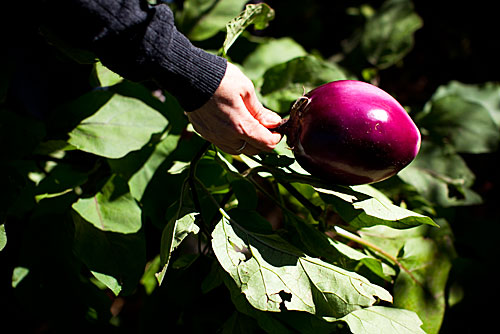
Impressive eggplant
What’s more delectable than this perfectly plum eggplant?
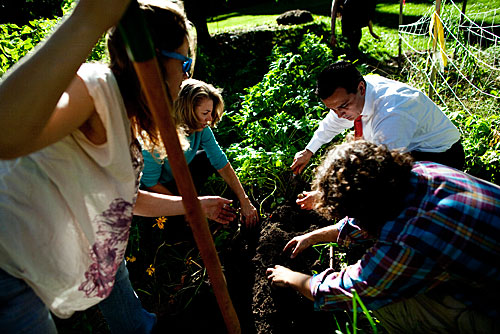
Garden party
Graduate students and members of the Harvard Divinity School community reap the bounty of the land.
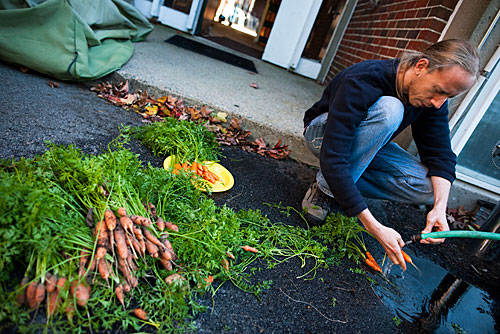
The root of it
Divinity School student Tom Schueller cleans bunches of carrots.

Oh, baby!
These carrot nubbins may be small, but still pack a nutritional punch.
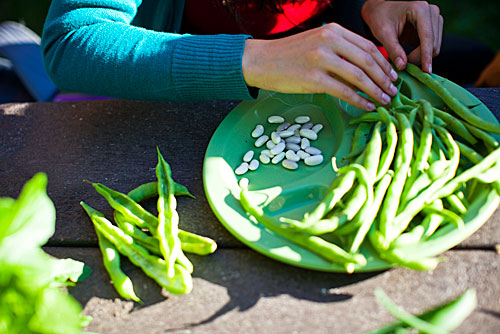
World peas
Fresh peas and beans are prepared for the big community garden feast.

Grillin’ it
Heirloom tomatoes, eggplant, and corn earn grill marks and flavor on the grill.

Veggin’ out
After the harvest, the Divinity School group encircled the garden, joined hands in prayer, and performed a circle dance before eating their vegetables.

